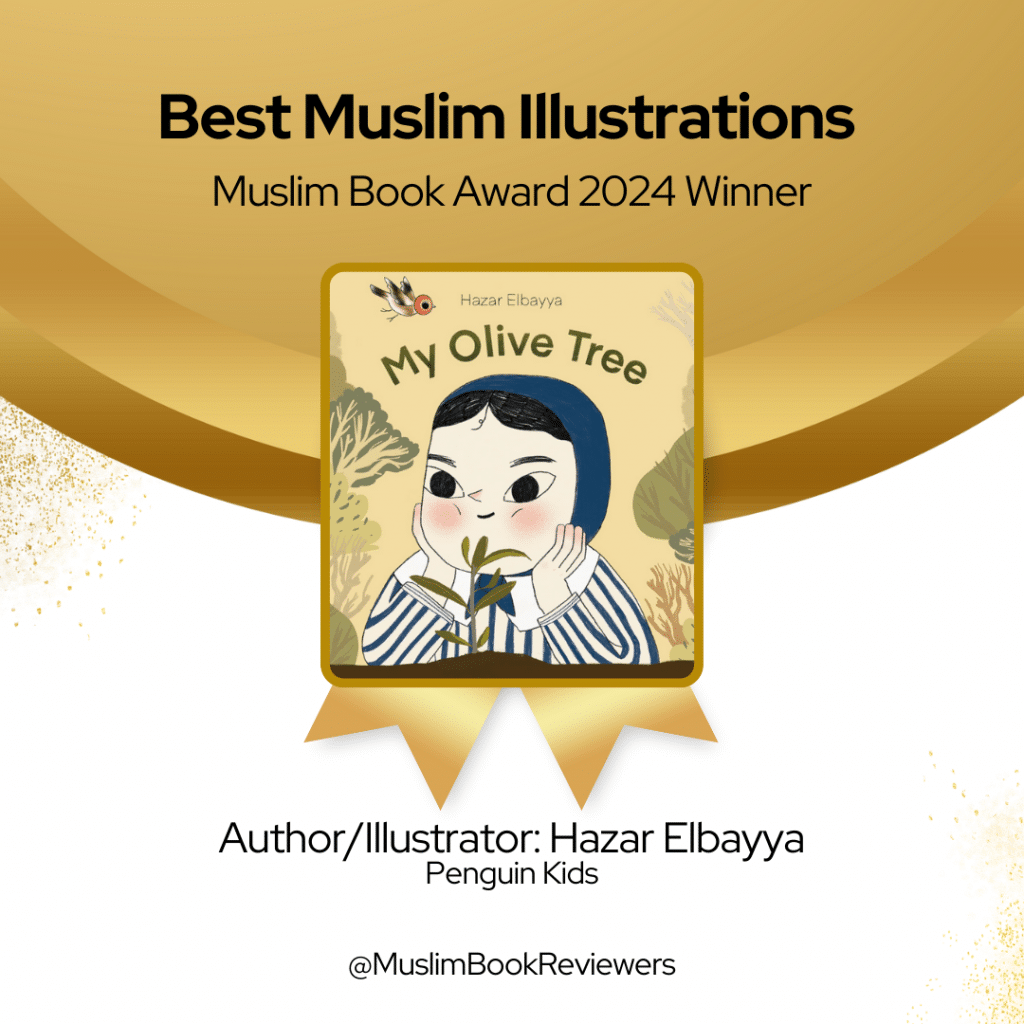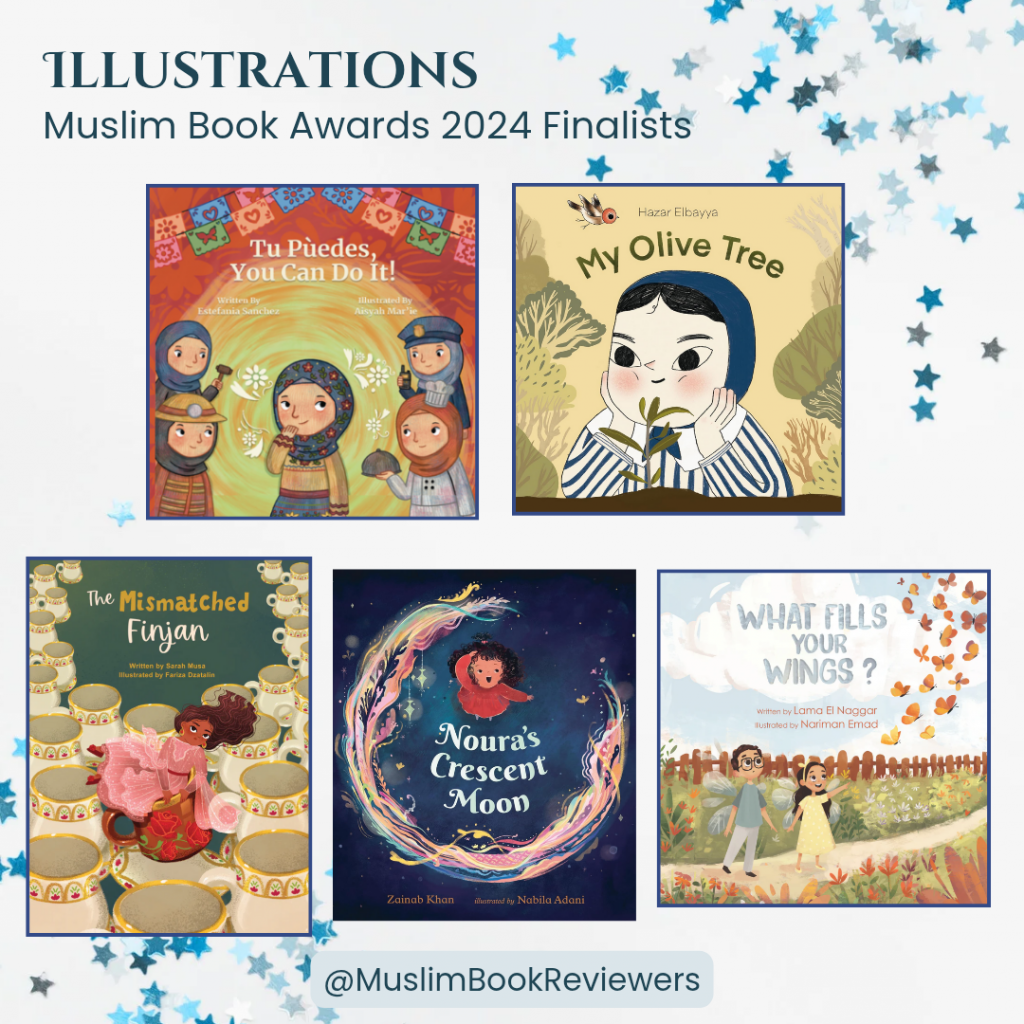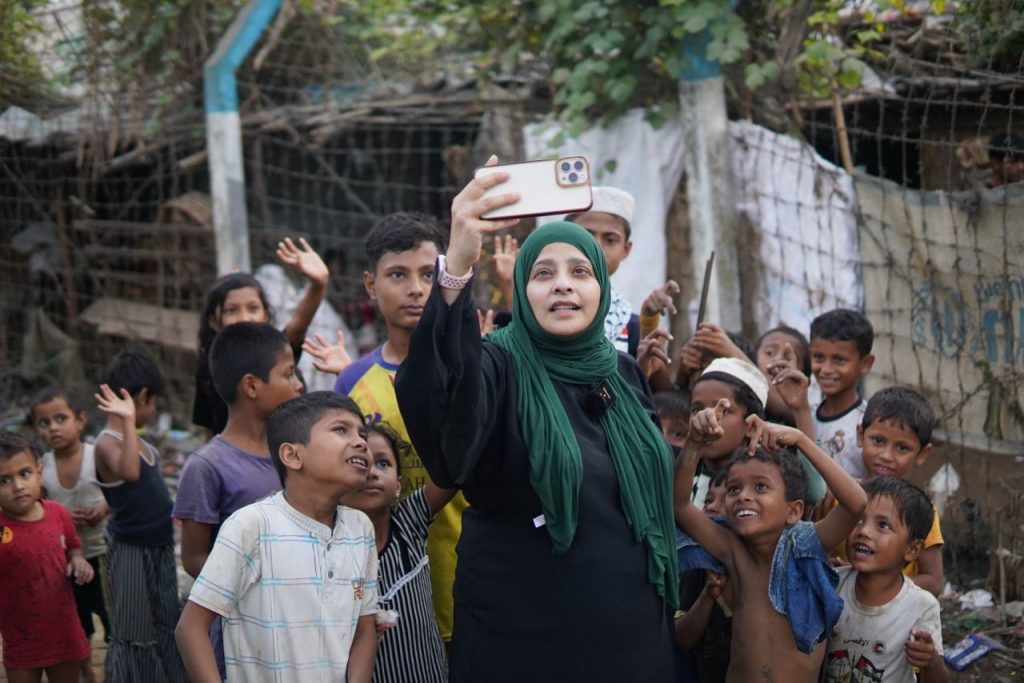Reading Time
- Summary Transcript: ~4 minutes
- Full Transcript: ~28 minutes
Learning Objectives
- Understand the Five Categories of Tahara:
- Identify and describe the five categories of purification in Islam: external, limbs, heart, mind, and holistic.
- Explain the Importance of Tahara:
- Articulate the significance of each type of Tahara and how they contribute to spiritual and physical well-being.
- Practice Proper Hygiene as Part of Tahara:
- Recognize the Islamic practices for personal hygiene, such as washing the body, hair care, dental hygiene, and trimming nails, and their religious significance.
- Discuss the Concept of Sunan al-Fitra:
- Define Sunan al-Fitra and list the natural practices included in this concept.
- Interpret the Hadith on Fighting in Islam:
- Understand the historical context of the hadith that discusses fighting until the declaration of faith, and clarify its intended meaning.
- Apply the Hadith to Modern Contexts:
- Analyze how the teachings of the hadith should be understood and applied in modern times, emphasizing peaceful propagation and education of Islam.
- Embody Holistic Purification (Tahara tul Jawhar):
- Develop personal and spiritual practices that align with the concept of holistic purification, seeing the world through the attributes of Allah.
- Reflect on the Role of the Hereafter in Daily Actions:
- Explore the significance of remembering the hereafter in daily practices of cleanliness, such as the metaphor of the heat of a bath reminding one of the Day of Judgment.
Class Summary
In Islam, purification (Tahara) and the context of religious obligations are integral to spiritual and physical well-being. This post explores the five levels of purification and clarifies the historical and spiritual context of certain teachings in Islam, including the concept of fighting for the faith.
The Five Categories of
Tahara (Purification)
Purification in Islam is not limited to physical cleanliness; it encompasses various aspects of life. Imam Ibn Qudamah, following the tradition of Islamic scholarship, categorized Tahara into five distinct types:
- External Purification (Tahara tul Hiss): This refers to the physical purification of the body, such as washing hands, feet, and face, and removing impurities.
- Purification of the Limbs (Tahara tul Jawarih): This involves purifying one’s actions, ensuring that our deeds align with what is pleasing to Allah.
- Purification of the Heart (Tahara tul Qalb): The heart must be cleansed of ill intentions, envy, grudges, and other negative emotions to maintain a pure connection with Allah.
- Purification of the Mind (Tahara tul Khatar): Achieving mental purity means training the mind to focus only on thoughts that are pleasing to Allah. This requires consistent effort and self-discipline.
- Holistic Purification (Tahara tul Jawhar): This level combines all forms of purification, allowing one to see and reflect on the universe through the lens of Allah’s attributes. It’s the pinnacle of spiritual awareness.
Practical Aspects of Purification
The practice of Tahara includes personal hygiene and cleanliness. The importance of washing the body, combing and oiling the hair, using miswak (tooth-cleaning stick), and keeping nails and knuckles clean is emphasized. In Islam, these practices are not just about cleanliness but are acts of worship and adherence to the Sunnah (teachings of the Prophet Muhammad, peace be upon him).
The discussion extends to practices like trimming the mustache, plucking underarm hair, shaving the pubic area, and dyeing gray hair. These practices, termed as Sunan al-Fitra, are considered natural and recommended in Islam.
The Context of Fighting in Islam
Understanding Hadith Number Eight
The discussion then moves to Hadith number eight from al-Arba’een an-Nawawiyyah, which states: “I have been commanded to fight people until they witness that there is no god but Allah and that Muhammad is the Messenger of Allah, establish the prayer, and pay the zakah.” This hadith is often misunderstood, especially in modern times.
Clarifying Its Meaning
The hadith’s context refers primarily to the Prophet’s time, particularly in the Arabian Peninsula, where the pagan Arabs were already at war with Islam. The “fighting” mentioned was meant to establish peace and the rule of Islam, not to impose Islam forcibly. It aligns with the Quranic principle: “There is no compulsion in religion” (Surah Al-Baqarah, 2:256). The aim was to protect life and property and ensure that Islamic obligations were practiced.
The hadith also emphasizes that saying “There is no god but Allah” is the bare minimum to be accepted as a Muslim. Further teachings, such as prayer and zakah, would be gradually taught and practiced. This principle serves to highlight the process of religious education rather than immediate enforcement.
Modern Application
In today’s context, these teachings are not applied on an individual level without the presence of an established Islamic governance. Instead, they serve as guidelines for community reform, education, and spiritual growth. The post emphasizes that the hadith should not be used to justify forced conversion or violence but should be seen as part of a historical context with its specific conditions.
Conclusion
Purification in Islam (Tahara) goes beyond physical cleanliness; it extends to actions, thoughts, and spiritual awareness. Similarly, the principles around fighting for Islam are tied to historical and spiritual contexts that emphasize peace, education, and gradual implementation of faith. By understanding these aspects, Muslims can strive for personal and communal purity while applying religious teachings with wisdom and context-appropriate guidance.
May Allah (SWT) make us among those who listen to the teachings and follow the best of them, purifying us inside and out.
Full Transcript
The Five Categories of
Tahara (Purification)
In our discussion, we are covering the subject of Tahara, the book on purification, and the secrets of purification and Salah. Before we start reading from our text today, I want to remind myself and everyone about the meaning of Taharaitself. Imam Ibn Qudamah, following in the footsteps of Imam Al-Ghazali, mentioned Tahara in different categories.
So, in the book, we have different categories for Tahara. We add the next one as well to make them five. Let’s see if you still remember these categories.
1. External Purification (
Tahara tul Hiss)
What is the first one? Tahara of what? Come on, Najmaa, help me out over here. Tahara of what? What do we call that? The external one, which we call Tahara tul Hiss. The external one, right? It means the purification of the body—your hands, your feet, your face, and so on.
So, that’s the first thing. And you purify that from what? From Najasat—what is Najas—what is considered impure, and also what is considered filthy or dirty. That’s the first category.
2. Purification of the Limbs (
Tahara tul Jawarih)
The second category, Tahara of what? Tahara tul? Before the heart, there’s something else.
Al-Jawarih—the limbs—from what? From As-Sayyiat, from sins. You purify your deeds, basically. So, your eyes don’t look except at what is pleasing to Allah (SWT). Your hands do only what is pleasing to Allah (SWT). Your tongue doesn’t pronounce anything but what is pleasing to Allah (SWT). So, you’re purifying your deeds right now.
3. Purification of the Heart (
Tahara tul Qalb)
Number three, the third category, what is it? The Tahara of the heart. You purify your heart from what? From any ill feelings, any ill intentions, from hasad, from envy, from jealousy, from grudges. You purify your heart from all of this because the heart is important. Once it’s clear, the body will listen to it and follow what’s in the heart.
4. Purification of the Mind (
Tahara tul Khatar)
Now, the fourth category—which was mentioned—is the Tahara of the mind, Tahara tul Khatar. From what? So that nothing crosses your mind except that which is most pleasing to Allah (SWT). How can you even get to that level? It requires a lot of hard work, a lot of exercise, a lot of training. You train yourself, you train your nafs regularly until it becomes so comfortable in thinking only what is most pleasing to Allah (SWT). Nothing crosses the mind except something that’s pleasing to Allah (SWT).
5. Holistic Purification (
Tahara tul Jawhar)
Now, the fifth category is the Tahara tul Jawhar, the essence. What does that exactly mean? Holistically, all this Taharacombined makes you a spiritual person in that you see nothing in this universe, in this world, except what is pleasing to Allah (SWT). You see the beautiful names and attributes of Allah in every single action around you. Whether it’s something good or something destructive, you still see the amazing attributes of Allah (SWT). That is something that is at the highest level of spirituality.
Purifying the External: Personal Hygiene
So, inshallah, we’re going to continue now from where Imam Ibn Qudamah left off, which is Section 2 on purifying the external. That’s on page forty-one.
When purifying the external with respect to removing waste, one should know that waste is of two types: removable dirt, like what gathers in the hair. It is recommended to wash the hair, then comb and oil it to remove its scuffliness. Similarly, it is recommended to remove dirt from the ears and the nose. One is encouraged to use the siwak and rinse his mouth to remove the yellowness of the teeth and tongue.
He should also wash his knuckles and the dirt that gathers around his body because of sweat and road dust. All of this is removed by the ritual of bathing.
On General Hygiene and Cleanliness
So, let’s go back again to what he mentioned. What is the first thing that comes to your mind when you hear someone like Imam Ibn Qudamah speaking about these things? Does it make you think about how perfect our deen is? Many of these principles are being taught today as the basics of hygiene. You remember COVID-19? What happened with COVID-19? What did they ask you to do? Wash your hands. Wash your hands for twenty seconds every day if you can, every time you touch something. SubhanAllah. They also tell you in regard to allergies and asthma to always rinse your nose and keep your sinuses clean. All these things have been discovered today in science, but our deen has already prescribed them for us as part of our practice.
Removing Dirt and Keeping Clean
He says rahimahullah, izaratul fadalat naw’an—with respect to removing waste, there are two types. One is called dirt, and then he mentions particles. In terms of removing dirt, he says anything that requires washing, it’s important that you do so.
He gives an example here: things that gather in your hair. Like what? When you play outside—you don’t have to play outside in the summer here in Texas—just walk in the sun, and suddenly you start feeling sweaty, and your head starts itching. How can you clean your hair and head? Wash it. Wash it with water. He says, yustahabbu tanzeefu bil ghusl, so you wash your hair and your head.
He mentions three things here: wash it with water, then take care of it. What does that mean? Take care of your hair. He said two things after that: tarjeel and tadheen. What’s the difference between tarjeel and tadheen? Tarjeel means to comb your hair, which means to take care of it, keep it tidy and nice. Tadheen is using oil, for example, or anything that makes it shiny and clear. And that’s a sunnah of the Prophet (SAW) to do that.
Sunnah of Caring for Hair
He said, sallallahu alayhi wa sallam: “Man kana lahu sha’arun fal yukrim”—Whoever has hair, if you grow long hair—this is for both men and women—fal yukrim, which means take care of it. Take care of your hair; don’t let it be disheveled all over the place. Some people nowadays, unfortunately, think that leaving their hair wild is a sign of humbleness and humility. That you’re just a very humble person. No, it’s not. It’s not even right. Make sure you keep it calm and well.
Using Oils and Creams for Hair
Now, in regard to using oil or creams, the Prophet (SAW) said: “Naha an yatarajja arrajulu illa ghibban”—Do not do it too frequently, which means don’t do it every single day. Every other day is okay. Every now and then is okay.
Does that include the beard for men? The answer is yes, absolutely. You use that. Make sure you look nice and stay clean. The Prophet (SAW) is recommending that you take care of your hair. Whatever collects in the nose and ears, clean that. Every time you take a shower, do that. Every time you make wudu, make sure you clean your ears and nose. How do you do that? When it comes to wudu, use the tip of your fingers. Go through the earlobes completely to remove all the dirt. And when it comes to cleaning your nose, make sure you breathe some water in and blow that out to clear your sinuses. If you do that regularly, you’re not going to have any troubles. So, it is sunnah that we always stay clean.
Dental Hygiene and the Use of
Miswak
Then he talked about dental hygiene. Make sure you rinse your mouth clean regularly and use miswak. Nowadays, in place of miswak, we use a toothbrush and other modern things, and it’s okay.
Now, is it okay to use gum as a modern miswak? If it’s approved by the dental association, why not? Actually, it should be okay because the purpose is not really about using a specific thing to clean your mouth. As long as you use a tool that serves dental hygiene.
Some of our ulama, to the extent, say that because the Prophet (SAW) said: “If it wasn’t a hardship on my ummah, I would have ordered them to use miswak with every wudu or every salah.” Some of the ulama say if you don’t have miswak when making wudu, and you still want to do the sunnah of siwak while making wudu, what do you do? Use your finger. Obviously, assuming your finger is rough. Don’t realize in the 21st century, our fingers are, mashaAllah, very soft. They’re not going to do anything. Therefore, some ulama say if it’s soft, wrap a tissue around it and rub your teeth with that.
The whole idea is how much emphasis there is in the books of fiqh among our scholars on dental hygiene, on how to keep yourself always clean and healthy. SubhanAllah, to that level. Whether you use a miswak, a toothbrush, or your finger, it doesn’t matter as long as you keep it clean, inshaAllah.
Cleaning the Knuckles
Then he mentions cleaning the knuckles. Now, that’s interesting. Who even thinks about removing dirt from your knuckles? Where do you hear about caring for your knuckles? I understand the nose, the ears, the mouth, and so on. But the knuckles? Who even looks at your knuckles? When was the last time you even did that yourself, man? SubhanAllah, there’s a sunnah in it. And that’s why in wudu, the ulama say you need to roughen your knuckles a little bit with your fingers to make sure they stay clean as you perform wudu regularly. Because, if you don’t clean them, they will collect dirt and harmful matters.
Especially when you put your hand in food and eat with it. Can you imagine what it could lead to for yourself and others? So, it’s extremely important to do all this type of cleaning as mentioned here. However, all of this can be taken care of if you do what? Take a shower. Bil ghusl. Taking a shower regularly. I want to emphasize this specifically for us Texans. In the summer, it’s extremely, extremely important to take a shower regularly. If you need to take a shower ten times a day, do it—without extravagance, of course, and don’t waste too much water. But it is extremely important to take a shower before coming to the masjid and jama’ah. Are we clear on this?
Using Public Baths and Turkish
Hammams
The author Ibn Qudamah says going to the hot bath is fine as it removes the filth more effectively. A number of the companions of Allah’s Messenger (SAW) did so. However, one must make sure that others do not gaze at his nakedness or touch it, and that when he feels the heat, he should remind himself of the heat of Hell.
Let’s stop here for a moment. What is he talking about here? Is it the public bath? What do we call that? The Turkish hammam, right? He’s speaking about the Turkish hammams here. He says it’s okay to enter these public baths because, back in the day, these baths were extremely popular and were all over the community. In big cities like Baghdad, Damascus, and every major city in Muslim lands, they had these public baths. They used to have them for both men and women sometimes, but mostly for men. They would go there, have hot water, scrub all the dirt, and get refreshed and clean.
A lot of these baths still exist today, even in our society here in this country. There are some here in Dallas too. Every now and then, it’s okay for people to do that, he says. He mentions it was reported that some of the companions did that. When did they do that? When they traveled to Ash-Sham (the Levant). When the companions traveled between Medina and Ash-Sham, Ash-Sham used to be a Roman area, and they had these Roman baths, which is where the Turkish hammamoriginated.
However, he says if you go to these public baths, make sure to watch your sight and cover your awrah because there’s a big chance of being exposed due to a lack of attention or by accident. People need to watch their sight and cover their awrah as well. That’s extremely important.
Remembering the Hereafter When Feeling Heat
Then he said something here: qal wa yanbaghi lil-dakhili ilayhi ayatadhakkara bi harrati harra an-nar. He says, for a believer, whenever you enter and see the steam, feel the heat, touch the hot water, and that water touches your body, you need to remember the Day of Judgment. He says, remember Hell. Now, it may not be the best moment to think about it, but he says it’s important that a believer remembers Hellfire when they feel the warmth of that water.
Why? He’s going to explain why this is a good idea. This is because a believer’s thoughts are always engaged in the matters of this world in a way that reminds him of what is in the afterlife. A believer is occupied with the afterlife, and every vessel flows over with that which it holds.
A Believer’s Reflection on the World
What does that mean? If you are a believer, and your thoughts are always on the Akhirah, eventually, it’s going to show in your reflections. If you only think of Allah (SWT), His pleasure, and His wrath, everything in this dunya will remind you of it.
He gave some examples. Do you not see that if a draper, carpenter, builder, and weaver all enter a house, the draper would gaze at the furniture and think about its price; the weaver would look at the fabrics of the garments; the carpenter would evaluate the ceiling, and the builder would look at the walls. This is how a believer is. When he sees darkness, he remembers the grave. If he hears a frightening sound, he remembers the blowing of the horn. Upon seeing bliss, he remembers the bliss of Paradise, Na’im al-Jannah. Upon seeing torment, he remembers Hell.
As you can see, he gives an example. If a carpenter enters a house, what catches his eye? All the woodwork in the house. He looks at the furniture, cabinets, and other wooden things and starts evaluating them. If a tailor sees you wearing something, they’ll start touching your sleeves and clothes to see how well-done or valuable they are. That’s human nature.
Even our ulama say two people don’t benefit from two things: the qari of the Qur’an doesn’t benefit from the salah behind an imam. Why? Because while listening to the imam reciting, the qari focuses on whether the imam recited too long or too short, whether he pronounced properly or made mistakes. So, they end up worrying about the tajweed instead of benefitting from the recitation. Similarly, an Arabic teacher doesn’t benefit from a khatib‘s Arabic speech because he focuses on the grammar instead of the content.
That’s natural for us. The example of the believer is that if your heart and mind are always filled with thoughts of the Akhirah, everything in this dunya will remind you of it. If you see darkness, the first thing that crosses your mind is the darkness of the grave. If you see bliss in this world, you think of the bliss of Paradise. You say, “This is so good; how is Jannah going to look like?” For example, in summer, people want to travel to see beautiful things—Yosemite, Banff in Canada, and other places. When a believer stands in front of these beautiful things, they wonder how Jannah will look compared to this dunya.
If you walk in the streets and smell barbeque, it’s probably you; your skin is sizzling in the Texas summer heat. When you start feeling the heat, it should remind you of Hell. Qul naru jahannam ashaddu harra. It reminds you that Hell is even hotter. May Allah protect us.
A believer always sees this dunya as a reflection of what they have in their heart. If your heart is full of the matters of the Akhirah, you will always reflect on the Akhirah. That’s what Imam Ibn Qudamah is trying to explain to us.
Prohibition of Entering Public Baths During Certain Times
He goes on: “It is disliked to enter a hot bath if the time of sunset prayer is close or between it and the evening prayer, for these are the times when the devils spread out.” The translation says “hot bath,” but it’s not really a hot bath. He talks about the hammam—the Turkish bath. Don’t go there before sunset or between Maghrib and Isha. In Arabic, the text says al-isha’an or al-isha’ayn. In Arabic, when two things are frequently used together, we use one of them to indicate both. For example, dhuhr and asr are called dhuhran. Dates and water are called aswadan because dates are usually dark. The sun and the moon are called qamaran in Arabic. Similarly, Maghrib and Isha are called isha’an.
He says, “Don’t go to the public bath before sunset or between Maghrib and Isha because that’s when the devils spread out, and you need to guard yourself.” This recommendation is not a prohibition. It’s disliked to go during that time, but it’s not haram.
Removing Waste: Hair, Nails, and Other Areas
Now, the second part: removing waste like cutting the mustache, plucking the armpits, shaving the pubic region, and clipping the nails. Let’s talk about this first. There is a hadith where the Prophet (SAW) called them sunan al-fitra. The Prophet (SAW) said: “Sunan al-fitra khams.” There are five things considered natural sunnah, like there’s no need for religious instruction to observe these good habits. What are they? He says, “Trim the mustache.” It means that the mustache should be trimmed so that it doesn’t fall on the upper lip. Once it starts falling on the upper lip, you need to cut it.
Hair Removal and Cleanliness
Can I keep it thick? Yes, as long as it doesn’t cover the upper lip. That’s the meaning of trimming the mustache. There is another narration: haffu sharb, which means to trim it almost completely, but not shave it entirely. The point is to ensure it doesn’t fall on the upper lip.
The second thing mentioned is natful ibk, which means plucking underarms. Alhamdulillah, we now have machines and other methods for this. It is extremely important to do so. I want to emphasize this because, unfortunately, some cultures—here in America too—believe in living a “natural life,” thinking that if God didn’t want you to have hair, He wouldn’t let it grow there. So, they don’t trim anything, leading to long underarm hair. When you get sweaty, bacteria grows there, and it starts smelling really nasty. I don’t want anyone in this community to fall into this trap. Your underarms should always be clean. Shave it every time you shower. Shaving every single day is fine. Some people argue it’s part of the Sunnah al-Fitra to do it once every forty days. No, you can’t wait that long. Keep it always clean.
The word says “pluck,” but now we use razors to clean every day. That is fine.
Next, he says: al-ana, which means to shave the pubic area around the private part for both men and women. Make sure to keep it clean by shaving it completely. What about using chemicals? If they’re not harmful to the body, it’s okay. What about using lasers? Using lasers is disputable because some ulama consider it as fire, which might exclude you from the seventy thousand who enter Jannah without punishment. But it’s not haram; it’s just considered part of using fire.
Cutting Nails and Trimming the Beard
Also, the fingernails—you need to cut them regularly and keep them clean, both toes and fingers. The Prophet (SAW) recommends doing this regularly.
For the men, regarding the beard, the sunnah is to grow a beard. The Prophet (SAW) did not mention how long to keep it but said to grow it. If you decide to trim your beard or mustache, make sure to clean up after yourself. Part of the sunnah is to keep everything clean around you, even when trimming.
Dyeing Gray Hair
It is disliked to pluck gray hair, while dyeing it is recommended. So, what do you do with those salt-and-pepper hairs? I remember when I was younger, and there were just one or two gray hairs, my kids would pull them out whenever they saw one. They thought it was a thread! Now, I think they’re starting to pluck out the black ones instead.
There are narrations, though not all of them are authentic, regarding the prohibition of plucking gray hairs because they are a sign of maturity. The Prophet (SAW) sometimes praised those who grow gray in Islam. If your beard becomes gray in Islam, or your hair grows gray in Islam, it’s like an honor to grow old in Islam. Alhamdulillah, it’s a blessing.
Then, it’s recommended to dye the hair. What kind of dye? There are many opinions on this matter. The Prophet (SAW) forbade using the black color—pitch black, basically. However, was that because it was black, or was it simply the most common color among the Arabs back then?
When the Prophet (SAW) saw the father of Abu Bakr as-Siddiq during the conquest of Mecca, his head was all white, like a cauliflower. The Prophet (SAW) said, “Change this and avoid black.” Some scholars interpret this strictly, saying that only black is prohibited. This means you can dye it brown, blonde, or even gray if you prefer.
Others argue that the prohibition on black is because it was the standard color of the time, and that other natural colors should also be avoided if they deceive others into thinking you are younger than you are. So, they suggest avoiding any color that would restore your youthful appearance.
What about using henna? Does it have to be henna? The answer is no. You can use any product as long as it is not harmful to the body or the skin.
The other levels of purity will be discussed in books on spiritual growth and the purification of the soul, inshaAllah. And that is what we will be covering in the future. Next time, when we come back, we will be discussing the subject of Salah. What are the inner secrets of Salah? May Allah (SWT) make us among those who listen to the speech and follow the best of it and purify us inside and out.
Hadith Number Eight: Fighting for Islam
The author switches to a new topic at this point:
Tonight, we will be discussing Hadith number eight from al-Arba’een an-Nawawiyyah by Imam Sharh Ibn Rajab (RA). The Hadith is narrated by Ibn Umar (RA): The Messenger of Allah (SAW) said, “I have been commanded to fight people until they witness that there is no god but Allah and that Muhammad is the Messenger of Allah, establish the prayer, and pay the zakah. Then, if they do that, they have protected their blood and their property from me, except for the right of Islam, and their reckoning is up to Allah.” (Bukhari and Muslim)
This hadith is extremely important right now, especially in our time, because it has been misused and misunderstood by many, including Islamophobes and others, to claim that Islam is about fighting people. Others say there is a reason why the Prophet (SAW) said what he said.
Context and Interpretation of the Hadith
The Prophet (SAW) said, “I have been ordered to fight people until they bear witness that there is no god but Allah and that Muhammad is the Messenger of Allah.” How do we translate the meaning of fighting people? Who are these people? Is this instruction limited to the time of the Sahabah, or does it extend to our time? And if so, how do we understand the concept of this fighting?
The Prophet (SAW) said, “Until they bear witness that there is no god but Allah and that Muhammad is the Messenger of Allah, establish Salah, and pay zakah.” If they do that, they have protected their blood and property from me, except by the right of Islam. What does that mean? It means their rights within Islam, such as paying zakah. If someone does not pay zakah, should we fight them to pay it? If someone commits murder, do we have the right to retaliate for that crime? These are the meanings of haqq al-Islam. If they have committed something haram in this world and run away with it without being punished, does that mean they are free of accountability? No. Their reckoning is still with Allah (SWT).
Reconciling Different Narrations
Imam Ibn Rajab (RA) explains that this hadith has multiple narrations. Some of these exclude Salah and zakah. For instance, some narrations state that if they say, “There is no god but Allah,” that is sufficient to protect their life and wealth. How do we reconcile these narrations?
He explains that the Prophet (SAW) accepted just the two shahadahs from everyone who came to him, and that was sufficient to regard them as Muslims. He did not stipulate that they must immediately pray or pay zakah. For example, the story of Usama bin Zayd (RA): When he was on a battlefield and chased after a man, just as he was about to kill him, the man said, “There is no god but Allah.” Usama still killed him, believing the man was saying it just to save his life. When the Prophet (SAW) heard what happened, he was extremely angry. The Prophet (SAW) said, “Did you open his heart to see if he was sincere or not?” From this, Ibn Rajab (RA) argues that saying “There is no god but Allah” was enough for the Prophet (SAW) to accept a person as Muslim.
However, in our time, things are different. Before someone can say, “There is no god but Allah,” do they even know what it means? Many people today who pronounce the shahadah might not understand its meaning. It is extremely important to ensure they know what Islam entails before they declare the shahadah. If someone comes to you and says, “I want to become Muslim,” do you refuse them? Absolutely not. We do not refuse anyone who wants to declare the shahadah.
If someone comes with a condition—such as, “I want to be Muslim, but I cannot quit drinking”—what do you tell this person? You tell them, “Say the shahadah first, and then we can discuss the drinking issue.” If someone says, “I want to become Muslim, but I have a boyfriend,” do you accept them on that condition? Imam Ibn Rajab (RA) says that the Prophet (SAW) accepted Islam from a tribe that stipulated they would not have to pay zakah or fight in jihad. The Prophet (SAW) said, “They will pay the zakah, and they will fight in jihad.” The stipulation was null once they became Muslim.
Acceptance of Islam With Invalid Conditions
Imam Ahmad (RA) says the acceptance of Islam can be sound with an unacceptable precondition, but the person is then required to fulfill all the judgments and rulings of Islam. He cites an example where a man wanted to pray two prayers instead of five, and the Prophet (SAW) initially accepted his conversion, knowing that he would eventually learn and follow all Islamic teachings.
The principle here is that you can accept Islam from someone with an invalid condition. However, you do not accept the condition itself as part of Islam. You guide them to understanding that their condition is not valid in Islam.
In cases where a group of people collectively decide not to practice any pillars of Islam, like an entire town refusing to pray or give zakah, scholars say they may be fought against to uphold the practice of Islam. This is different from individuals. The application of such rules depends on the context of a Muslim society with an Islamic government, something that does not currently exist purely anywhere in the world. In our time, these principles guide community education and reform rather than physical enforcement.
Contextualizing Fighting in Islam
The Prophet (SAW) was both a messenger of mercy and one who came with a sword. However, his use of force was balanced and contextual. This hadith must be understood in its historical context, where the Arabian Peninsula was already at war with him. Fighting was to establish peace, not to impose Islam on unwilling hearts. Therefore, while fighting against people for Islam was an order in specific contexts, the ayah La ikraha fi al-deen (“There is no compulsion in religion”) abrogates the idea of forced conversion. The primary goal is the spread of dawah and the peaceful establishment of Islam.
Disputes on Individual Punishments and Modern Context
As for killing a single individual who refuses any of the obligations like prayer or zakah, most scholars believe that someone who refuses to pray should be fought against. This is the position of Malik, Ash-Shafi’i, Ahmad, Abu Ubaid, and others. However, there is something called istitabah, which is the process of bringing the individual to court, debating with them, advising them, giving them nasiha, and giving them time to correct their behavior before taking further action.
Now, some might say, “What kind of rule is this?” It’s important to understand that these rules were valid during that time and might be applicable when there is a properly established Islamic state. However, you cannot apply this rule now in a society that does not follow Islamic governance. Today, in most parts of the Muslim world, governments do not rule purely by Shariah. As a result, this rule is not applied on an individual level. It is left to Allah (SWT).
Even though there were times when Islamic states existed, how many people were killed because they didn’t pray? It wasn’t common to apply this rule individually; it was more of a collective rule. The focus was more on community behavior rather than individual punishment. Therefore, this principle is mainly for situations where an entire community, village, or city collectively decides to abandon Islamic practices in a Muslim land under the sovereignty of Islamic governance.
Addressing Islamophobia
Now, before closing, let’s address the argument that this hadith is often used by Islamophobes to say that Muslims are going after people, killing them if they don’t accept Islam. How can we reconcile this hadith with the ayah in the Qur’an: “There is no compulsion in religion” (Surah Al-Baqarah, 2:256)? How do we reconcile the command to fight people until they accept Islam with this ayah that says you cannot force someone into Islam?
We must understand the context of this hadith. Each era has its own specific circumstances. The Prophet (SAW) came as both a messenger of mercy and a messenger with a sword. It was about balance. In some cases, he would extend his hand for peace, and in other situations, he would fight when necessary.
There’s a story narrated about the Prophet (SAW) when he was making tawaf around the Kaaba. The elite of Quraysh were sitting in the Hijr (the semi-circular area near the Kaaba). As the Prophet (SAW) passed by them, they started insulting him. Abdullah ibn Amr (RA) narrates that he could see the signs of distress on the Prophet’s (SAW) face, but he kept walking. The second time around, they did the same thing. Again, he could see the distress in his face, but the Prophet (SAW) continued his tawaf. The third time they insulted him, he stopped his tawaf, walked straight up to them, and said, “Listen to me, people of Quraysh. I swear, I have come to you with slaughter.” His statement made them go completely silent because they knew that when Muhammad (SAW), the truthful and trustworthy, spoke, he meant it.
They replied, “Go in peace, O Abu Al-Qasim (another name of the Prophet SAW).” From this incident, scholars say that the Prophet (SAW), who came with a message of mercy, also knew when to use force. He fought when necessary but extended his hand for peace when needed. This hadith applies to a time when there was a clear need to defend and establish the rule of Islam.
The term “umirtu an uqatil an-naas” (“I have been commanded to fight the people”) refers primarily to the Arab tribes of that time, particularly in the Arabian Peninsula, where the pagan Arabs were given a choice between Islam, leaving the peninsula, or being fought. This was unique to the Arabs because they were the first people the Prophet (SAW) was sent to. For other nations, the choices included becoming Muslim, paying the jizya (a tax for protection), or fighting.
The Goal of Fighting: Establishing Peace, Not Killing
Another interpretation of this hadith is that the “fighting” mentioned is not about killing, but about striving to establish the rule of Islam. The objective is not to kill but to invite people to Islam or establish peace.
Some scholars say this hadith was later abrogated by the ayah in Surah At-Tawbah: “Fight those who do not believe in Allah…” until they pay the jizya with willing submission. This ayah indicates that people have the option to keep their religion by paying the jizya, thereby coming under the protection of the Islamic state without converting.
Historically speaking, Muslim conquests show that Islam did not forcefully convert people en masse. Islam ruled over large geographical areas where people of other faiths lived peacefully, sometimes for centuries, before some gradually chose to convert to Islam. The hadith reflects the context of the Prophet’s (SAW) time and the specific circumstances in the Arabian Peninsula.
Thus, the hadith establishes that when someone says, “There is no god but Allah and Muhammad is the Messenger of Allah,” it is the bare minimum to protect their life and property. After that, they can be gradually educated about prayer, zakah, and other aspects of the faith.
May Allah (SWT) make us among those who listen to the speech and follow the best of it. May He purify us inside and out. InshaAllah, we will continue our session with questions and answers after Salat al-Isha.
Q&A
- What are the five categories of Tahara (purification) in Islam mentioned in the text?
- The five categories of Tahara are:
- External Purification (Tahara tul Hiss): Physical cleanliness of the body.
- Purification of the Limbs (Tahara tul Jawarih): Purifying actions to align with what pleases Allah.
- Purification of the Heart (Tahara tul Qalb): Cleansing the heart of ill intentions, envy, and grudges.
- Purification of the Mind (Tahara tul Khatar): Training the mind to think only of what is pleasing to Allah.
- Holistic Purification (Tahara tul Jawhar): A spiritual level where one sees the universe through the lens of Allah’s attributes.
- What is the significance of external purification (Tahara tul Hiss)?
- External purification involves the physical cleanliness of the body, such as washing the hands, feet, face, and removing impurities. It is the first step in purification and is key to maintaining personal hygiene as part of religious practice in Islam.
- Why is the purification of the heart (Tahara tul Qalb) important in Islam?
- The heart must be purified from ill intentions, envy, jealousy, and grudges because a clean heart influences one’s actions. When the heart is free of negativity, the body will naturally follow and act in ways that are pleasing to Allah.
- What practices are emphasized under external purification in the text?
- Practices include washing the body, caring for hair (washing, combing, oiling), using miswak for dental hygiene, cleaning knuckles, removing body hair, trimming nails, and maintaining cleanliness in general.
- What does Sunan al-Fitra refer to, and can you name some practices included in it?
- Sunan al-Fitra refers to natural practices that are recommended in Islam. These include trimming the mustache, plucking underarm hair, shaving the pubic region, and cutting nails.
- How does the text describe the proper care of hair and the use of oils?
- The text recommends washing the hair, combing it to keep it tidy (tarjeel), and using oils (tadheen) to keep it shiny. The Prophet Muhammad (SAW) encouraged taking care of one’s hair, including using oils and creams, but advised against overdoing it.
- Why is dental hygiene emphasized in Islam, and what tools are traditionally recommended?
- Dental hygiene is emphasized as part of personal cleanliness and religious practice. The use of miswak (tooth-cleaning stick) is traditionally recommended, though modern tools like toothbrushes are also considered acceptable.
- What are the key points discussed regarding the hadith about fighting people until they accept Islam?
- The hadith refers primarily to the context of the Prophet’s time, particularly in the Arabian Peninsula, where the aim was to establish peace, not to impose Islam by force. It aligns with the Quranic principle of “There is no compulsion in religion.” The hadith emphasizes that declaring “There is no god but Allah” protects life and property, with further teachings introduced gradually.
- How does the text suggest Muslims should understand and apply the hadith about fighting in modern times?
- In modern times, the application of this hadith is mainly about community education and spiritual reform, not individual enforcement. It should be contextualized within its historical setting and not used to justify forced conversions or violence.
- What practical steps can Muslims take today to embody the holistic purification (Tahara tul Jawhar)?
- Muslims can strive for holistic purification by maintaining physical cleanliness, purifying their actions and thoughts, and developing a spiritual awareness that sees everything in the world through the attributes of Allah. This involves regular self-reflection, personal hygiene, mindful actions, and constant remembrance of Allah.
- What is the significance of remembering the hereafter when performing acts of cleanliness, like entering a hot bath?
- Remembering the hereafter during acts of cleanliness, such as feeling the heat of a bath, serves as a reminder of the heat of Hell and the Day of Judgment. This reflection helps a believer stay mindful of their actions and maintain a spiritual focus on the afterlife.
The post Study Classical Texts the Traditional Way | Session 13 appeared first on MuslimMatters.org.
 .
.
 courage in the face of the fire, our faith must embolden us to stand firm despite societal pressures.
courage in the face of the fire, our faith must embolden us to stand firm despite societal pressures.
 while taking responsible action, recognizing that the ultimate outcome is in Allah’s
while taking responsible action, recognizing that the ultimate outcome is in Allah’s  Hands. Trust in Allah
Hands. Trust in Allah  empowers us to overcome external pressures. The stories of the Prophets show how reliance on Allah
empowers us to overcome external pressures. The stories of the Prophets show how reliance on Allah  transforms vulnerability into strength. When Prophet Ibrahim
transforms vulnerability into strength. When Prophet Ibrahim  stood before the fire, his unwavering faith turned an impossible situation into a moment of divine intervention, as Allah
stood before the fire, his unwavering faith turned an impossible situation into a moment of divine intervention, as Allah  commanded,
commanded,













 .” They said, “The two hadiths allowing prayer with ablution alone, without a full ritual bath (ghusl), are abrogated, as previously mentioned in the chapter on what necessitates ghusl. However, the instruction to wash the private part and anything it comes into contact with remains unchanged, which clearly indicates the ruling of impurity regarding vaginal discharge.”7
.” They said, “The two hadiths allowing prayer with ablution alone, without a full ritual bath (ghusl), are abrogated, as previously mentioned in the chapter on what necessitates ghusl. However, the instruction to wash the private part and anything it comes into contact with remains unchanged, which clearly indicates the ruling of impurity regarding vaginal discharge.”7












 said, “If you want this high status, you have to meet the criteria set by Allah.”
said, “If you want this high status, you have to meet the criteria set by Allah.”













